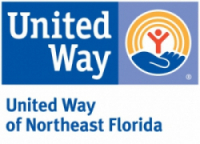The Mad City Money workshop requires teenagers to integrate their knowledge of money, math skills, attitudes about choices and money values. During the workshop, participants make decisions with immediate repercussions that might not occur for years in real life. They have the opportunity to modify their decisions and actions and see the impact of changes right away. They have chances to experiment and make mistakes—and suffer the consequences of their decisions—in a realistic, but safe, environment.
Simulations are a good way for learners to practice real life by taking on responsible roles, finding ways to succeed, and developing problem-solving tools. Simulations make students hands-on participants, not just listeners or observers. Simulations motivate participants because their involvement in the activity is so personal that it leads them to want to learn more about the simulated subject matter.
Face it—most adults would consider the topic of budgeting to be a “yawner.” Books and classroom lectures on the subject likely would put most teenagers to sleep. But a budgeting simulation elicits higher levels of interest, motivation, and engagement. This activity can produce higher quality problem solving in participants than traditional classroom methods do. What’s more, simulations encourage persistence and creativity.



